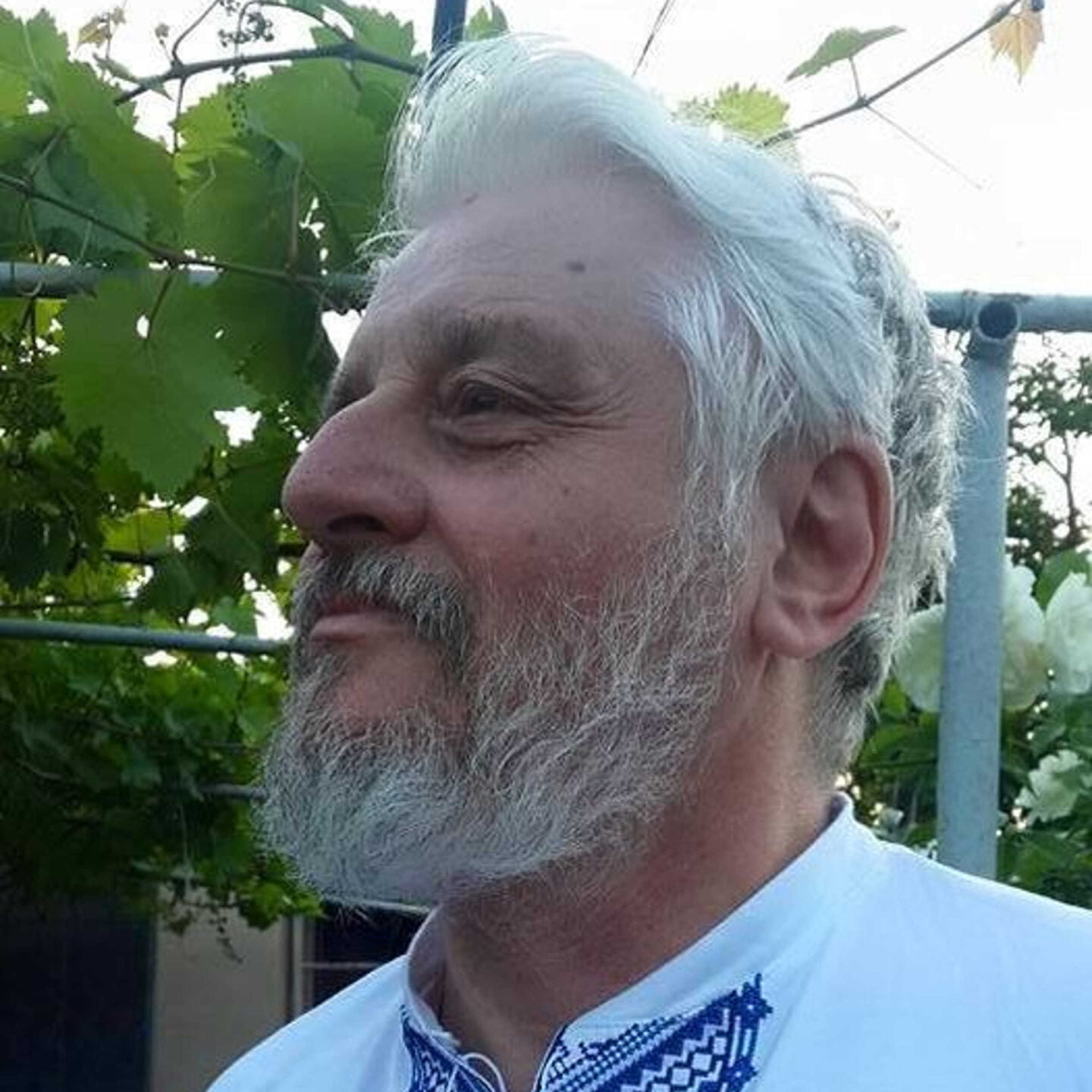
Boris Khersonsky
- Ukraine
- Zu Gast beim ilb: 2017, 2022
Boris Grigorievich Khersonsky was born in 1950 in Chernivtsi, Ukraine and studied medicine in Ivano-Frankivsk and Odessa. He initially worked as a neurologist before becoming a psychologist and psychiatrist at the state hospital in Odessa. In 1996 Khersonsky took on an appointment at the department of psychology at Odessa National University, before becoming chair of the department of clinical psychology in 1999.
In addition to writing scientific articles on topics such as depth psychology and the use of psychoprophylaxis in family conflicts, Khersonsky also continued a family literary tradition begun by his grandfather, a pediatric neurologist who wrote satirical verse under the pseudonym »Ro«, and continued by his father, the poet Grigory.
Boris Khersonsky published his first poems while still at university. Before and during perestroika he was part of the Samizdat movement, which disseminated alternative, nonconformist literature through unofficial channels.
His works were published both in Odessa’s municipal press and abroad in literary journals and anthologies. Khersonsky’s formal literary debut came in 1993 with »Vos’ma častka« [tr: The Eighth Part]. Four years later he published »Semejnyj Archiv«, a story in poetic form that also appeared in German in 2010 as »Familienarchiv« [Eng. »Family Archive« 2006]. The author tells the story of a Russian-Jewish family against the backdrop of the tragedies of the 20th century.
The influence of Khersonsky’s training as a psychologist is evident not only in his clear, poetic diagnoses, but also in his primary focus on people. Numerous other publications were followed by the 2014 volume of poetry »Missa in tempore belli/Messa vo vremena vojny« [tr: Mass in Times of War] in which Khersonsky describes his impressions of the Maidan revolution. It was followed a year later by »Otkrytyj dnevnyk«, a »public diary« about the Ukraine crisis that focuses particularly on Odessa. »Odesskaya intelligenciya« [2018; tr: The Intellectuals of Odessa] is a declaration of love to the port city and its poets and thinkers.
In the second part, a collection of Khersonsky’s poems is also dedicated to the city. »Vklonytysja derevu« [2019] is a collection of texts by the author in either Ukrainian or translated by others. The two-volume bilingual edition »Raspečatka / Rozdrukivka« [2020], a cross-section of his work, was published on his 70th birthday.
His literary work has won Khersonsky much recognition, including being named laureate of the Kievskie lavry Poetry Festival [2008], being awarded the Jury Special Prize at the Literaris Festival for East European Literature [2010] as well as the Maksym Kyrijeno-Voloshyn Literature Prize [2019] for his »Odessa Diary«. Khersonsky lives in Odessa.
Date: 2022
Vos’ma častka
Odesskij vestnik
Odessa, 1993
Familienarchiv
Wieser
Klagenfurt, 2010
[Ü: Erich Klein u. Susanne Macht]
Mramornyj list
ARGO-RISK
Moskau, 2009
Missa in tempore belli/Messa vo vremena vojny
Iwan Limbach
Sankt Petersburg, 2014
Kaby ne raduga
Folio
Charkiv, 2015
Otkrytyj dnevnyk
Duch i litera
Kiew, 2015
Vspyška Sverchnovoj
Roždestvenskie stichi
Duch i litera
Kiew, 2017
Odesskij dnevnik 2015–2016
Folio
Charkiv, 2017
Odesskaja intelligenzija
Folio
Charkiv, 2018
Vklonytysja derevu
Vydavnyctvo Staroho Lʼeva
Lviv, 2019
Novejšaja istorija serednevekovʼja
Folio
Charkiv, 2019
Devjat
Folio
Charkiv, 2020
Raspečatka / Rozdrukivka
Folio
Charkiv, 2020
